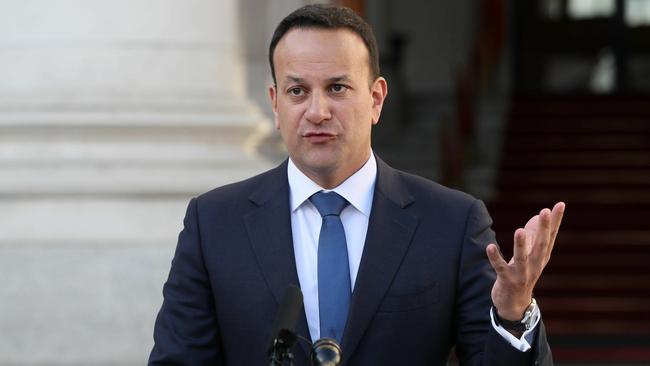No-deal Brexit means hard border with Ireland, European Commission confirms
A no-deal Brexit would lead to a hard border in Ireland, the European Commission has admitted for the first time.

A no-deal Brexit would lead to a hard border in Ireland, the European Commission has admitted for the first time.
Brussels has previously resisted setting out what would happen were Britain to leave without ratifying the present draft withdrawal treaty, to avoid controversy in Ireland.
But in a shift that will put Dublin under increased pressure to compromise, the commission’s official spokesman was pushed to speculate on what would happen if no deal could be reached.
“I think it is pretty obvious you will have a hard border,” said Margueritas Schinas, the commission’s chief spokesman.
“I can reiterate our commitment to the Good Friday agreement, support to peace and trans-border co-operation, but a no-deal Brexit will clearly, clearly put most of these things at risk.”
Irish Prime Minister Leo Varadkar told the Irish parliament that no-deal would leave Ireland with “very difficult choices”.
“It would have to protect the integrity of the single market and the UK would have to patrol its borders,” he said.
Mr Varadkar suggested there might be an attempt to negotiate a deal with Britain “on Customs and regulations so that there would be no hard border”, although this was what the present backstop proposal managed to do. “We have a proposal that does work. We have to stand by it,” he said.
Simon Coveney, the Foreign Minister and Mr Varadkar’s deputy, added: “In the absence of the backstop and a withdrawal agreement, we have a very difficult job to do to prevent border infrastructure, but of course that would have to be our focus.”
Mr Coveney was recorded last week privately admitting that there would have to be Irish checks under single-market rules if there was no deal “but we can’t get into where they’ll be at this stage”. He added: “Once you start talking about checks anywhere near the border, all of a sudden we’ll be the government that reintroduced a physical border on the island of Ireland.”
The commission’s view has been noted in Downing Street, with senior sources pointing out that Brussels had until now maintained a disciplined silence on the potential for border checks. Theresa May has said Britain would not introduce Customs checks or posts on the Irish border but that “the Irish government will be expected to apply EU checks in full”.
A backstop to ensure that a hard border does not emerge after Brexit is the most contested element of the withdrawal agreement because it could lock Britain into a Customs union with the EU and draw new regulatory boundaries between the mainland and Northern Ireland.
The British Prime Minister has repeatedly promised Northern Ireland that her government would do “everything in our power” to avoid a hard border, fearing for the peace process., but in a television interview earlier this month she said this would require action to resolve issues arising from Brexit. She told the BBC: “No border doesn’t happen simply because people sit around saying, ‘Well, we won’t have a border’.”
The Democratic Unionist Party, Mrs May’s partner’s in government, which opposes her deal along with Eurosceptic Tory MPs, has accused the commission of “more belligerent bluffing”.
The DUP’s Brexit spokesman, Sammy Wilson, said: “It didn’t work before, it won’t work now. Good luck to them if they think they can put a hard border up.”
The commission dismissed Mrs May’s announcement on Tuesday that she would again try to amend the backstop after rejecting her efforts to do so last year.
“We have nothing new to say because there is nothing new from London,” Mr Schinas said.
The Times



To join the conversation, please log in. Don't have an account? Register
Join the conversation, you are commenting as Logout